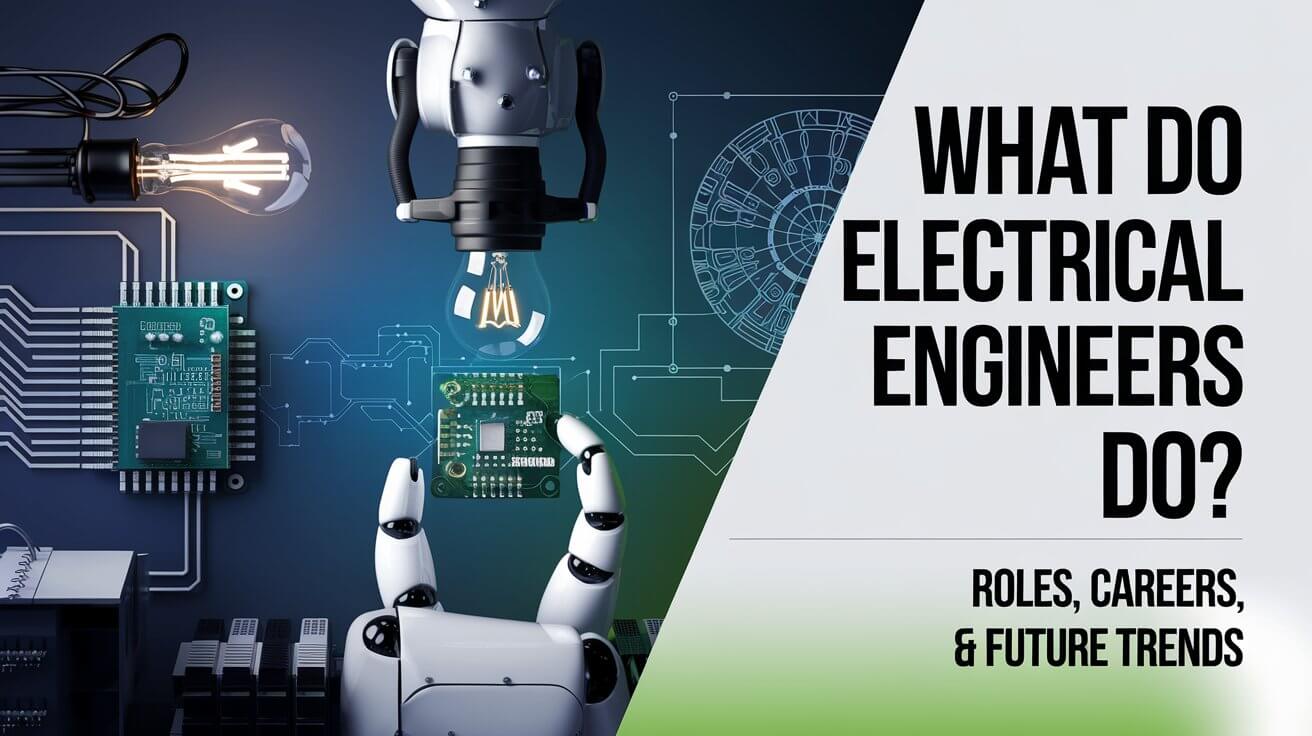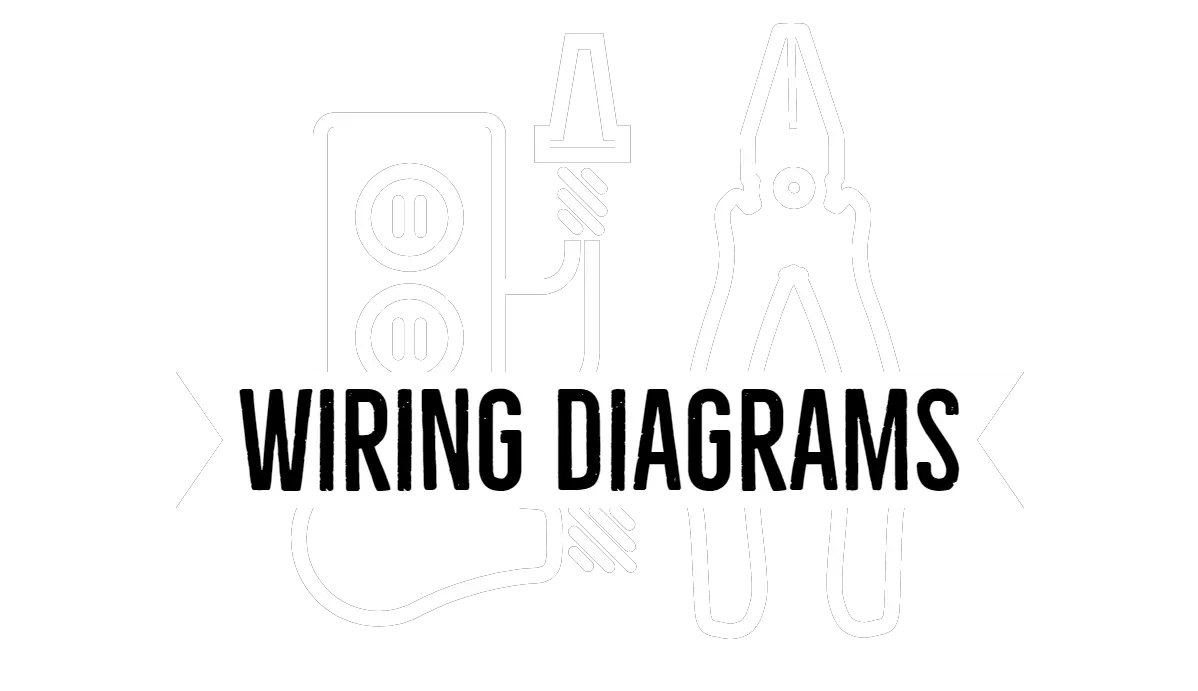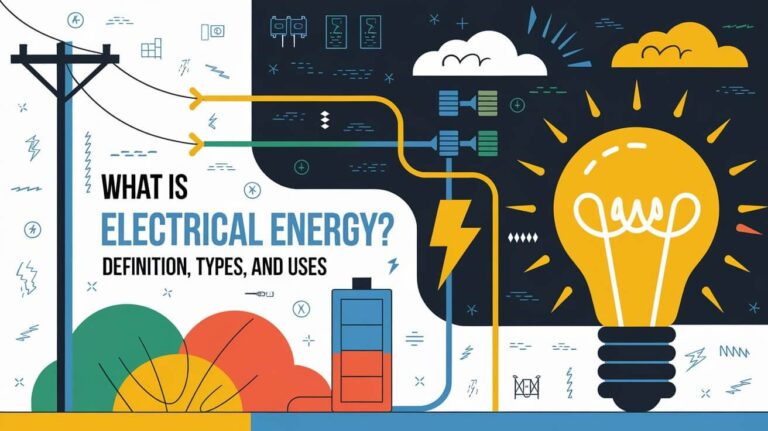What Do Electrical Engineers Do? Roles, Careers, & Future Trends

Electrical engineers play a critical role in developing and maintaining the infrastructure of modern technology. From power generation systems to telecommunications, electrical engineers design, test, and manage the systems that power everyday life. This article provides a detailed look at the responsibilities, work environments, industries, and future trends for electrical engineers, offering insight into this dynamic field.
What Is Electrical Engineering?
Electrical engineering is a broad field focusing on the study, design, and application of electrical systems. These systems can range from large-scale power grids to tiny circuits in electronics. Electrical engineers work to improve electrical equipment, devices, and power systems. They ensure that these systems operate safely, efficiently, and reliably. Electrical engineering overlaps with electronics engineering, but while electrical engineers focus more on power systems, electronics engineers delve into smaller-scale electronic devices like microprocessors.
Key Roles and Responsibilities of Electrical Engineers
Design and Development of Electrical Systems
Electrical engineers are responsible for designing new ways to use electrical power. They create systems for commercial, industrial, and residential applications. This may include designing power generators, electric motors, or electrical circuits. Engineers must ensure that the systems they develop are efficient, reliable, and compliant with safety standards. For example, in the automotive or aerospace industries, electrical engineers design the electrical systems that power vehicles, ensuring that everything from motors to navigation systems works effectively.
Power Generation and Distribution
One of the central roles of electrical engineers is in power generation and distribution. They design and maintain power plants, transmission lines, and electrical grids that supply energy to cities and industries. With the growing focus on renewable energy sources, electrical engineers are increasingly involved in integrating solar, wind, and other renewable energy into the existing grid. They ensure that power systems are not only efficient but also sustainable and resilient against failures or outages.
Control Systems Engineering
In industries like manufacturing, electrical engineers develop control systems that manage machines and processes automatically. These systems include sensors, actuators, and controllers, which work together to monitor and adjust machinery to improve efficiency and safety. For instance, in automated factories, control systems help regulate the production line, ensuring that machines work precisely and products meet quality standards.
Telecommunications and Network Engineering
Electrical engineers are heavily involved in telecommunications, creating and maintaining communication networks. They design the infrastructure for everything from radio and TV broadcasting to fiber optics and wireless networks. In recent years, electrical engineers have been at the forefront of advancements in 5G technology and Internet of Things (IoT) networks, which require innovative design to handle the increasing demand for faster and more reliable data transmission.
Testing and Maintenance of Electrical Equipment
Once electrical systems are in place, they require ongoing maintenance to ensure they operate efficiently. Electrical engineers are responsible for testing these systems, troubleshooting issues, and ensuring compliance with safety regulations. They often work on-site to monitor the performance of electrical systems, whether it’s a power plant, a telecommunications tower, or a manufacturing facility. Their expertise is crucial in diagnosing problems and recommending solutions.
What Is the Typical Work Environment of an Electrical Engineer?
Office-Based Design Work
Much of an electrical engineer’s time is spent in an office, designing electrical systems using specialized software. This design work includes simulations and circuit modeling to test ideas before physical prototypes are built. Engineers often collaborate with colleagues, including other engineers, project managers, and technicians, to ensure that designs meet the project’s requirements. Software like MATLAB, AutoCAD, and various circuit design programs are commonly used to simulate electrical systems and ensure their feasibility.
Laboratory and Testing Environments
In addition to office-based work, electrical engineers spend time in laboratories or testing facilities. These environments allow them to experiment with new technologies, test electrical components, and prototype new systems. Engineers use a range of equipment, including oscilloscopes, multimeters, and signal generators, to measure and analyze electrical signals and ensure their designs work as intended. This hands-on testing phase is crucial to refining designs and troubleshooting potential issues.
Field Work and On-Site Roles
Electrical engineers also work on-site at power plants, construction sites, or manufacturing facilities. In these environments, they oversee the installation of electrical systems, troubleshoot operational issues, and ensure that the systems meet design specifications. Fieldwork offers engineers valuable real-world insights into the systems they design, allowing them to make adjustments and improvements based on practical considerations.
Industries That Employ Electrical Engineers
Power and Energy Sector
Electrical engineers are integral to the power industry. They work on designing, operating, and maintaining the infrastructure that powers homes, businesses, and entire cities. With the global push toward renewable energy, electrical engineers are increasingly involved in integrating solar, wind, and other clean energy sources into the existing grid. Their expertise is vital in making energy systems more efficient and sustainable.
Aerospace and Defense
In the aerospace industry, electrical engineers develop avionics systems, radar, navigation, and communication systems for aircraft and spacecraft. Defense contractors also rely heavily on electrical engineers to create advanced systems for military applications, such as surveillance equipment, communication systems, and unmanned vehicles.
Manufacturing and Automation
In manufacturing, electrical engineers design the electrical control systems that power automation processes. This includes everything from robotic arms on an assembly line to the power distribution systems in a factory. These engineers help improve efficiency, reduce waste, and ensure that manufacturing processes are safe and effective.
Telecommunications and IT
Telecommunications is one of the biggest employers of electrical engineers. Engineers in this field design communication networks, including fiber optics, satellite systems, and wireless technologies. The increasing demand for faster internet speeds and the expansion of IoT devices create new opportunities for electrical engineers to develop cutting-edge telecommunications systems.
Research and Development
Many electrical engineers work in research and development, where they explore new technologies and materials. They might work on improving semiconductor devices, developing better battery technologies, or creating more efficient renewable energy systems. Engineers in R&D help drive innovation in many industries by developing solutions that make electrical systems faster, more efficient, and more sustainable.
How to Become an Electrical Engineer
Educational Requirements
To become an electrical engineer, a bachelor’s degree in electrical engineering or a related field is typically required. Most degree programs include coursework in digital systems design, electrical circuit theory, and differential equations. Students also gain hands-on experience through lab work and internships, which help prepare them for the challenges of the industry.
Certifications and Licensing
In addition to a degree, many electrical engineers pursue certifications and licenses to advance their careers. In the United States, engineers can become licensed as Professional Engineers (PE), which allows them to oversee projects, sign off on designs, and take on higher levels of responsibility. Certifications from organizations like the Institute of Electrical and Electronics Engineers (IEEE) are also highly valued by employers.
Skills Needed for Success
Successful electrical engineers must have strong analytical skills, a deep understanding of electrical theory, and excellent problem-solving abilities. They must also be proficient in the use of engineering software and be comfortable working in a collaborative environment. As technology continues to evolve, electrical engineers must be willing to keep learning and adapting to new developments in the field.
Electrical Engineer Salary and Job Outlook
Median Salaries
As of 2023, the median salary for electrical engineers in the United States is around $106,950, though salaries can vary depending on specialization and location. For example, electronics engineers, who focus more on smaller-scale electronic systems, often earn slightly more, with a median salary of $119,200.
Job Growth Projections
The demand for electrical engineers is expected to grow by about 9% from 2023 to 2033, which is faster than the average for all occupations. This growth is driven by the increasing need for renewable energy systems, advancements in telecommunications, and the ongoing development of electric vehicles and other technologies. Each year, about 19,000 job openings for electrical engineers are projected, many of which will result from the need to replace retiring workers or those transitioning to other fields.
Regional Variations in Demand
While electrical engineers are needed across the country, demand is particularly high in urban areas with a strong tech industry or in regions investing heavily in renewable energy. States like California, Texas, and New York tend to offer the most opportunities, especially in sectors like energy, aerospace, and telecommunications.
Key Challenges Electrical Engineers Face
Adapting to Rapid Technological Change
Electrical engineers must continuously update their skills to keep pace with technological advancements. Fields such as artificial intelligence (AI), 5G, and IoT are rapidly evolving, and engineers need to be able to adapt to these changes. This requires a commitment to lifelong learning and the ability to quickly grasp new concepts.
Energy Efficiency and Sustainability
As the world shifts towards more sustainable energy solutions, electrical engineers face the challenge of designing systems that are both efficient and environmentally friendly. This includes developing smarter grids, more efficient energy storage systems, and integrating renewable energy sources like wind and solar into the power grid.
Safety and Regulatory Compliance
Ensuring that electrical systems comply with safety standards and regulations is a significant challenge. Electrical engineers must stay updated on the latest industry regulations and ensure that the systems they design meet all necessary safety and performance standards.
Future Trends in Electrical Engineering
Growth in Renewable Energy
The renewable energy sector is expected to be one of the fastest-growing areas for electrical engineers. Engineers will play a critical role in designing and managing systems that harness solar, wind, and other renewable resources. They will also be involved in developing energy storage solutions, such as advanced batteries, to ensure that renewable energy can be stored and used efficiently.
Integration of AI and Automation
Automation is transforming industries, and electrical engineers are at the forefront of this revolution. In manufacturing, engineers are designing control systems that allow machines to operate autonomously. In smart homes and cities, electrical engineers are integrating AI to create more efficient and responsive electrical systems.
Electric Vehicles and TransportationVehicles**
The rise of electric vehicles (EVs) has created numerous opportunities for electrical engineers. They design the systems that power EVs, including battery management systems, electric motors, and charging infrastructure. Engineers are also involved in developing more efficient energy storage solutions and fast-charging technologies, which are crucial for the widespread adoption of EVs.
Conclusion
Electrical engineers have a wide range of responsibilities across various industries, from designing electrical systems to managing large-scale power grids and telecommunications networks. Their work is integral to the development of modern technology, and they play a critical role in solving some of the world’s most pressing challenges, including the transition to renewable energy and the expansion of telecommunications. As technology continues to evolve, electrical engineers will remain at the forefront of innovation, shaping the future of industries ranging from aerospace to manufacturing.
This article has provided an in-depth look at what electrical engineers do, the industries they work in, and the key challenges they face. As a result, electrical engineers continue to be essential to the functioning and advancement of our increasingly digital and energy-efficient world.



